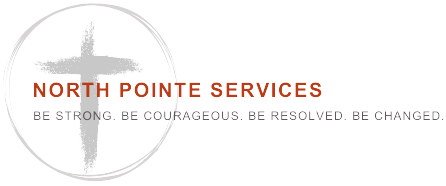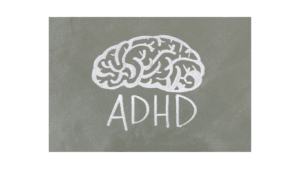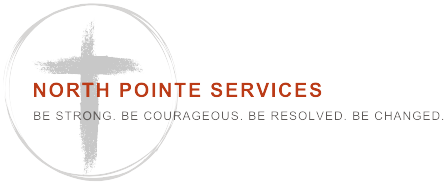Have you ever noticed how a single thought can shape your entire day? One lie whispered in your mind—“You’re not enough,” “You’ll never change,” “Nobody cares”—can spiral into anxiety, depression, or hopelessness. As counselors, we see how destructive thought patterns impact mental health. As Christians, we also know that these lies align with the enemy’s tactics in spiritual warfare.
The battle for mental health often begins in the battlefield of the mind. But the good news is that God equips us to fight back with truth—both through clinical tools like Cognitive Behavioral Therapy (CBT) and through the timeless promises of Scripture.
The Nature of the Lies
Every human being wrestles with distorted thoughts. In counseling, we call these cognitive distortions—patterns of thinking that are inaccurate and unhelpful. In Scripture, we see them as the schemes of the enemy—accusations, half-truths, and deceptions that pull us away from God’s peace.
Some common lies:
- “I am worthless.”
- “If I can’t do it perfectly, I’ve failed.”
- “Nobody will ever love me.”
- “I can’t change—I’ll always be this way.”
These thoughts aren’t neutral. They affect mood, behavior, and relationships. Left unchecked, they can fuel cycles of depression, anxiety, anger, or addiction.
How Spiritual Warfare Connects
Jesus called the enemy “the father of lies” (John 8:44). From the beginning, Satan’s strategy has been deception—twisting God’s words, distorting identity, and sowing doubt about God’s goodness.
When a client sits across from us in despair, repeating lies about themselves, I often think: this is spiritual warfare in action. It may not look dramatic, but the enemy doesn’t need horns and fire to destroy a life—just a steady stream of lies that go unchallenged.
How CBT Helps Replace Lies with Truth
Cognitive Behavioral Therapy (CBT) is one of the most effective clinical approaches for treating depression, anxiety, and trauma. At its core, CBT teaches people to:
- Identify the thought. (“I’m a failure.”)
- Challenge the thought. (“Is that always true? What evidence do I have?”)
- Replace it with a balanced thought. (“I’ve failed at some things, but I’ve succeeded at others. My worth is not defined by one mistake.”)
This process is powerful because it interrupts the automatic loop of distorted thinking. Over time, the brain learns to replace lies with healthier, more accurate patterns.
How Scripture Speaks into the Same Process
Long before CBT, God gave us a similar strategy:
- “Take every thought captive to make it obedient to Christ” (2 Cor. 10:5).
- “Be transformed by the renewing of your mind” (Rom. 12:2).
- “Whatever is true, whatever is noble, whatever is right… think about such things” (Phil. 4:8).
Scripture gives us the ultimate “replacement thoughts.” Where CBT uses evidence and logic, God’s Word gives us unshakable truth about who He is and who we are in Him.
Lies vs. Truth: A Side-by-Side Example
| The Lie | CBT Challenge | Scriptural Truth |
| “I am worthless.” | What evidence supports this? Who says my worth is defined by performance? | “You are precious and honored in my sight, and… I love you.” (Isa. 43:4) |
| “Nobody cares about me.” | Have there been people who’ve shown care before? | “Cast all your anxiety on Him because He cares for you.” (1 Pet. 5:7) |
| “I can’t change.” | What changes have I already made in my life? | “If anyone is in Christ, the new creation has come.” (2 Cor. 5:17) |
| “I’ll always be alone.” | What relationships do I already have? | “Never will I leave you; never will I forsake you.” (Heb. 13:5) |
Practical Steps for Replacing Lies with Truth
- Notice the Thought. Pay attention to the internal dialogue. Journaling or thought logs can help.
- Name the Lie. Don’t just accept it as fact—call it what it is: a distortion, a scheme, a deception.
- Challenge It. Ask: Is this 100% true? Am I overlooking evidence?
- Replace It. Insert God’s Word or a balanced, truthful statement. Write it on a card or say it aloud.
- Repeat Until It Sticks. Neural pathways change through practice. The more we reinforce truth, the weaker the lie becomes.
Removing Stigma: Both Are God’s Gifts
Some Christians hesitate to use “secular” tools like CBT, while some clinicians avoid talking about Scripture. But when we put them together, we see how God’s common grace in psychology and His revealed truth in Scripture work side by side.
- CBT teaches us to interrupt negative thought cycles.
- Scripture provides eternal truths that outlast our shifting emotions.
- Together, they empower believers to overcome lies, reclaim peace, and live in freedom.
Final Encouragement
Spiritual warfare doesn’t always look like dramatic encounters. More often, it shows up in the quiet, persistent lies that shape how we see ourselves and God. The good news? We are not powerless. With clinical tools like CBT and with the truth of God’s Word, we can dismantle the lies and stand firm in the freedom Christ offers.
So the next time a thought whispers, “You’re not enough”—stop, challenge it, and replace it with the truth: “I am fearfully and wonderfully made” (Psalm 139:14). That’s not just good psychology. That’s the gospel at work in your mind.
✨ At North Pointe Services, we believe in counseling that integrates clinical excellence with faith-fueled hope. If you or someone you love is struggling, reach out—we’d be honored to walk with you.








